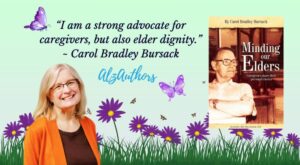A Caregiver’s Struggle: Balancing an Older Adult’s Sense of Purpose with Their Safety
A recent question on the AgingCare Caregiver Forum brought back memories from my early days of caregiving. The member wrote, “My 81-year-old father still thinks he can do handyman jobs around the house, including climbing ladders, using power tools, etc. How do I convince him that this is dangerous and he must stop?”
This post really struck a chord with me. Most seniors need to feel useful to enjoy a high quality of life. They maintain a sense of purpose by sticking to their everyday routines and engaging in activities and hobbies they enjoy. But if caregivers believe an elder’s actions are risky or downright dangerous, when should they step in?
As caregivers, we walk a thin line between keeping our loved ones safe and helping to preserve their independence. One of my first experiences with this concept occurred with my elderly neighbor and first care recipient. Joe was in his 80s and lived in his own home. He was totally deaf, so to communicate with each other, he would speak and I would write on a large legal pad.
One day, I hurried into his house at my typical visiting time and immediately sensed that something was off. Joe would usually sit at his kitchen table waiting for me to arrive, but this time there was no sign of him. I feared the worst and ran down the basement steps since he’d fallen there before. Fortunately, he wasn’t there. I headed back upstairs, where I heard a rustling noise coming from his bedroom. Joe, whose gait was wobbly at best on a flat surface, was perched halfway up a metal ladder. He was using needle-nose pliers to jab into a light fixture in his closet ceiling. There was no bulb in the fixture and the electricity was still on. Joe saw me and gleefully screeched, “Hold the ladder, honey! I’ll be down in a minute.”
I frantically grabbed my legal pad and wrote “GET DOWN!” in big letters. He just chuckled. This scene ended with me turning off the fuses in the fuse box, so he wouldn’t electrocute himself. He eventually tottered down off the ladder and we shared some laughter. Joe couldn’t understand why I was upset. He was simply trying to fix the light, and it was his house after all.
The issue at hand is that we want to keep our aging loved ones safe, but we also want them to be able to do for themselves as much as possible. So, at what point does the risk warrant our interference and demands that a loved one stop doing something they’ve always done? And, if something is dangerous enough, how do we get our elders to stop doing “handyman” tasks, difficult yard work, extensive cleaning, or monumental cooking projects?
Everyone needs a reason to get out of bed in the morning. If a person has no purpose in life, then why go on living? For elders whose bodies (and sometimes minds) seem to betray them more each day, this becomes a very contentious issue.
Some aspects of this dilemma are more black and white than others. For example, if Mom’s eyesight is seriously compromised…
Minding Our Elders: Caregivers Share Their Personal Stories. “For anyone having to walk the last segments of life with a loved one, read this.” …Delores
Shop Silverts Adaptable clothing:
Discover the Difference. EGOSAN – the Top-Rated incontinence brand from Italy. Now Available on Amazon.








